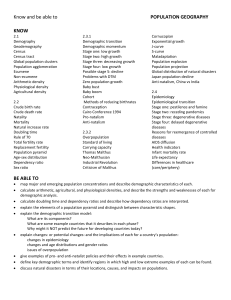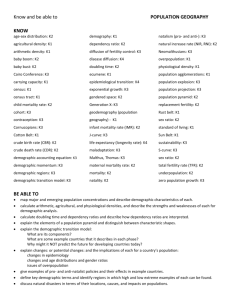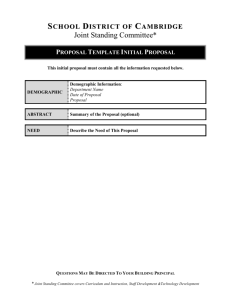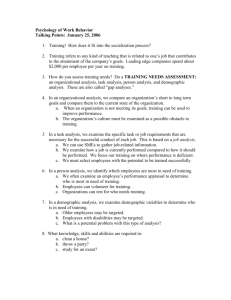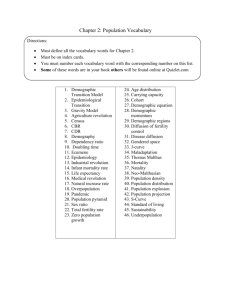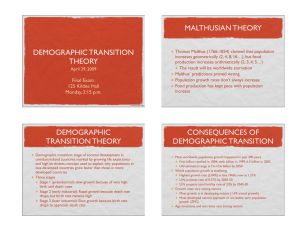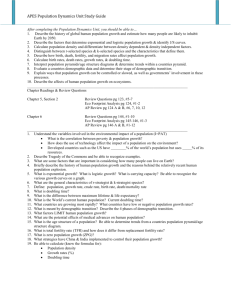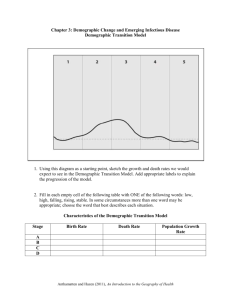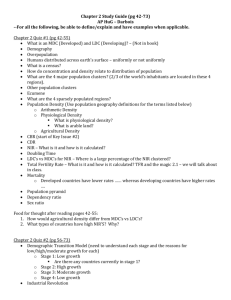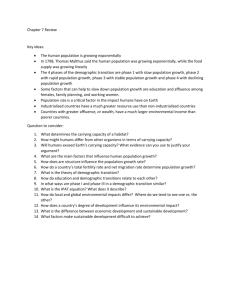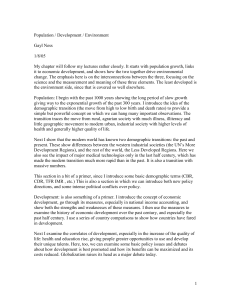kbat 02-population
advertisement
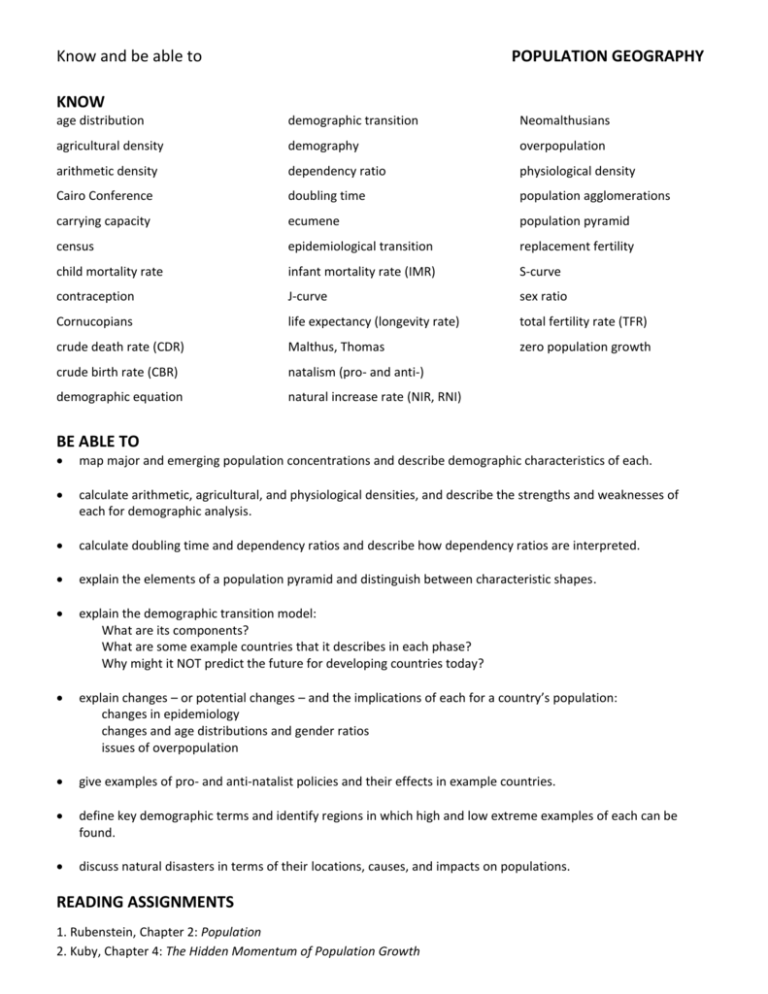
Know and be able to POPULATION GEOGRAPHY KNOW age distribution demographic transition Neomalthusians agricultural density demography overpopulation arithmetic density dependency ratio physiological density Cairo Conference doubling time population agglomerations carrying capacity ecumene population pyramid census epidemiological transition replacement fertility child mortality rate infant mortality rate (IMR) S-curve contraception J-curve sex ratio Cornucopians life expectancy (longevity rate) total fertility rate (TFR) crude death rate (CDR) Malthus, Thomas zero population growth crude birth rate (CBR) natalism (pro- and anti-) demographic equation natural increase rate (NIR, RNI) BE ABLE TO map major and emerging population concentrations and describe demographic characteristics of each. calculate arithmetic, agricultural, and physiological densities, and describe the strengths and weaknesses of each for demographic analysis. calculate doubling time and dependency ratios and describe how dependency ratios are interpreted. explain the elements of a population pyramid and distinguish between characteristic shapes. explain the demographic transition model: What are its components? What are some example countries that it describes in each phase? Why might it NOT predict the future for developing countries today? explain changes – or potential changes – and the implications of each for a country’s population: changes in epidemiology changes and age distributions and gender ratios issues of overpopulation give examples of pro- and anti-natalist policies and their effects in example countries. define key demographic terms and identify regions in which high and low extreme examples of each can be found. discuss natural disasters in terms of their locations, causes, and impacts on populations. READING ASSIGNMENTS 1. Rubenstein, Chapter 2: Population 2. Kuby, Chapter 4: The Hidden Momentum of Population Growth 3. FOCUS, Reading 3: Population of China: Large is Not Beautiful 4. FOCUS, Reading 4: The Spread of Natural Decrease
